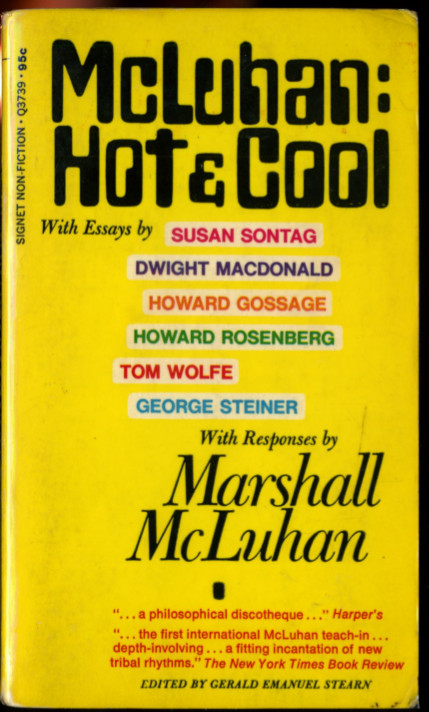Brian Rotman: Becoming Beside Ourselves: The Alphabet, Ghosts, and Distributed Human Being (2008)
Filed under book | Tags: · affect, alphabet, body, computing, gesture, god, language, mathematics, networks, posthuman, representation, self, semiotics, speech, subjectivity, technology

Becoming Beside Ourselves continues the investigation that the renowned cultural theorist and mathematician Brian Rotman began in his previous books Signifying Nothing and Ad Infinitum…The Ghost in Turing’s Machine: exploring certain signs and the conceptual innovations and subjectivities that they facilitate or foreclose. In Becoming Beside Ourselves, Rotman turns his attention to alphabetic writing or the inscription of spoken language. Contending that all media configure what they mediate, he maintains that alphabetic writing has long served as the West’s dominant cognitive technology. Its logic and limitations have shaped thought and affect from its inception until the present. Now its grip on Western consciousness is giving way to virtual technologies and networked media, which are reconfiguring human subjectivity just as alphabetic texts have done for millennia.
Alphabetic texts do not convey the bodily gestures of human speech: the hesitations, silences, and changes of pitch that infuse spoken language with affect. Rotman suggests that by removing the body from communication, alphabetic texts enable belief in singular, disembodied, authoritative forms of being such as God and the psyche. He argues that while disembodied agencies are credible and real to “lettered selves,” they are increasingly incompatible with selves and subjectivities formed in relation to new virtual technologies and networked media. Digital motion-capture technologies are restoring gesture and even touch to a prominent role in communication. Parallel computing is challenging the linear thought patterns and ideas of singularity facilitated by alphabetic language. Barriers between self and other are breaking down as the networked self is traversed by other selves to become multiple and distributed, formed through many actions and perceptions at once. The digital self is going plural, becoming beside itself.
With a Foreword by Timothy Lenoir
Publisher Duke University Press, 2008
ISBN 0822342006, 9780822342007
176 pages
Commentary (Ben Pritchett, Mute)
Review (Stevan Harnad, Times Literary Supplement)
Daniel Heller-Roazen: Echolalias: On the Forgetting of Language (2005)
Filed under book | Tags: · language, linguistics, literature, memory, speech, writing

Just as speech can be acquired, so can it be lost. Individuals can forget words, phrases, even entire languages, and over the course of time speaking communities, too, let go of the tongues that were once theirs, as languages grow obsolescent and give way to others. In Echolalias, Daniel Heller-Roazen reflects on the many forms of linguistic forgetfulness. In twenty-one concise chapters, he moves among classical, medieval, and modern culture, exploring the interrelations of speech, writing, memory, and oblivion. Whether the subject is medieval literature or modern fiction, classical Arabic poetry or the birth of French language, structuralist linguistics or Freud’s writings on aphasia, Heller-Roazen considers with precision and insight the forms, effects, and ultimate consequences of the persistence and disappearance of language. In speech, he argues, destruction and construction often prove inseparable. Among speaking communities, the vanishing of one language can mark the emergence of another, and among individuals, the experience of the passing of speech can lie at the origin of literary, philosophical, and artistic creation.
From the infant’s prattle to the legacy of Babel, from the holy tongues of Judaism and Islam to the concept of the dead language and the political significance of exiled and endangered languages today, Echolalias traces an elegant, erudite, and original philosophical itinerary, inviting us to reflect in a new way on the nature of the speaking animal who forgets.
Publisher Zone Books, 2005
ISBN 1890951498, 9781890951498
287 pages
review (Michael Newton, London Review of Books)
review (Dorian Stuber, Bryn Mawr Review of Comparative Literature)
Gerald Emanuel Stearn (ed.): McLuhan: Hot & Cool: A Primer for the Understanding of & a Critical Symposium with a Rebuttal by McLuhan (1967)
Filed under book | Tags: · global village, information, literacy, mass media, media theory, photography, print, radio, semiotics, speech, technology, television, text, writing

“A brilliant amalgam of articles, discussions, essays and interviews with and about the Pop Oracle himself, The Complete McLuhan: the most controversial thinker of the electronic age.” (from the back cover)
With essays by Howard Luck Gossage, Tom Wolfe, John Culkin, SJ., Dean Walker, Kenneth E. Boulding, George P. Elliott, Rudolph E. Morris, Walter Ong, SJ., Ammunition (C.I.O.), William Blissett, Harley Parker, Robert Shafer, John Freund, Patrick D. Hazard, Dell Hymes, Frank Kermode, A. Alvarez, Dan M. Davin, Raymond Williams, Harold Rosenberg, Dwight Macdonald, Christopher Ricks, Jack Behar, Ben Lieberman, John M. Johansen, George Steiner, Jonathan Miller, Andrew Forge, Benjamin DeMott, Susan Sontag; responses by Marshall McLuhan; and an interview by Gerald E. Stearn with McLuhan.
Publisher The Dial Press, New York, 1967
Signet Non-Fiction series, Q3739
312 pages
PDF (no OCR)
Comment (1)
